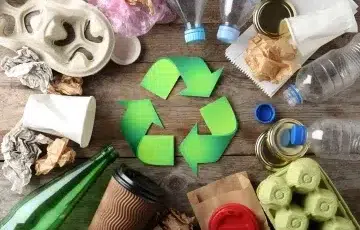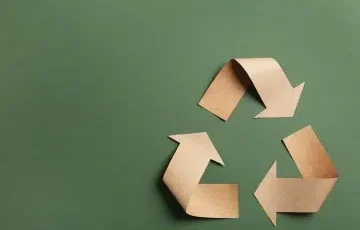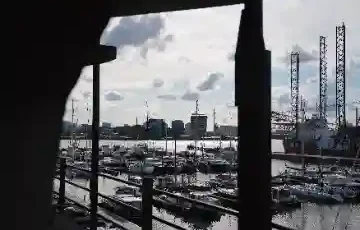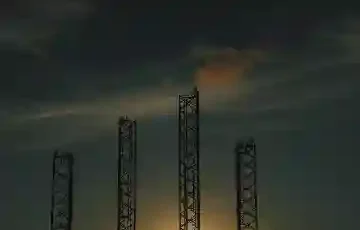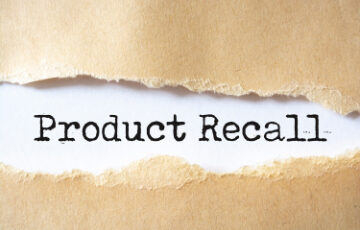Product recycling in the Netherlands is governed by the Packaging Management Decree and Extended Producer Responsibility (EPR) regulations. Producers must collect and recycle packaging and specific products at end-of-life according to mandatory percentages. The Environment Act introduces stricter requirements for waste separation and recycling through the Circular Materials Plan from 2024.
Dutch legislation holds producers and importers responsible for the entire product lifecycle. Under the Extended Producer Responsibility principle (EPR), businesses must ensure collection, processing, and recycling of their products. This responsibility applies to electrical appliances, batteries, packaging, and textiles. Therefore, increasingly more companies invest in circular product designs that facilitate reuse and recycling.
The regulations distinguish between different product categories. For plastic packaging, strict recycling percentages apply, while textiles recently fell under extended producer responsibility. Moreover, the European SUP Directive (Single Use Plastics) tightens rules for disposable plastics. Since July 2023, consumers pay mandatory fees for plastic disposable packaging at hospitality and delivery services, making reusable alternatives more attractive.
What Legal Frameworks Determine Product Recycling Under Dutch Law?
The Dutch recycling system relies on the Packaging Management Decree, the Environment Act, and European directives including the Waste Framework Directive. This legislation mandates producers assume financial and organizational responsibility for product take-back and recycling, with penalties reaching €21,000 for violations.
The legal framework for product recycling encompasses multiple legislative layers. At national level, the Dutch Civil Code regulates ownership transfer of waste materials, while the Environmental Management Act establishes general environmental requirements. However, emphasis shifts toward the Environment Act since 2024, which integrates waste management with spatial planning and environmental permits. This act introduces the Circular Materials Plan (CMP) as successor to the National Waste Management Plan.
European legislation forms the foundation for national rules. According to the Waste Framework Directive, member states must recycle at least 55% of municipal waste by 2025, increasing to 65% by 2035. Additionally, the SUP Directive establishes prohibitions on specific single-use plastics, such as plastic straws and plates. Dutch businesses must comply with both regulatory frameworks, whereby European rules take precedence in case of contradictions.
Specific products face supplementary decrees. The Electrical and Electronic Equipment Management Decree (WEEE Decree) requires producers to accept old equipment free of charge. Furthermore, the Batteries Decree mandates collection of 65% of all batteries. Businesses neglecting these obligations risk enforcement actions from the Human Environment and Transport Inspectorate (ILT), with administrative fines reaching €21,000 per violation.
What Does Extended Producer Responsibility Entail in Dutch Law?
Extended Producer Responsibility (EPR) means producers remain responsible for their product throughout its entire lifecycle, including collection and recycling after use. This principle has been mandatory since 2023 for batteries, electronics, packaging, automobiles, and textiles, requiring financial contributions to collective collection systems.
The EPR obligation requires concrete actions from businesses. Producers must join a recognized collection system, such as Verpact for packaging or Stibat for batteries. These organizations coordinate nationwide collection and ensure recycling according to legal standards. Annually, producers pay contributions per kilogram or unit of product placed on the market, ranging from several cents for paper packaging to €2.50 per kilogram for electronics.
The system establishes specific objectives per product group. For plastic packaging, a recycling percentage of 50% applies, increasing to 55% in 2025. For electrical appliances, 85% of weight must be reused or recycled. Therefore, manufacturers increasingly invest in design-for-recycling: products designed for easy disassembly. For instance, some furniture manufacturers create modular furniture with separate components that can be easily replaced, preventing disposal of the entire product.
Enforcement of EPR obligations is strict. The ILT annually verifies whether producers meet their collection obligations. Initially, violations result in warnings with six-week recovery periods. If remediation fails, the inspectorate can impose penalty payments of €5,000 per week, with a maximum of €100,000. Moreover, competitors can pursue legal action for unfair competition, since non-compliance creates competitive advantage.
How Does End-of-Waste Status Work for Recycled Materials in the Netherlands?
A material loses its waste status when it undergoes useful application, meets technical specifications, and has market value without adverse environmental effects. According to Article 9.1.1.7 of the Environment Act, producers must demonstrate that material satisfies all end-of-waste criteria, after which the competent authority provides a legal assessment.
End-of-waste status is crucial for the circular economy. As long as material qualifies as waste, strict transport and processing requirements from the Environmental Management Act apply. However, once end-of-waste status is achieved, the material can be freely traded as raw material. This significantly reduces administrative burdens and transport costs. For example, the construction sector uses granulate from recycled debris as full-fledged raw material, provided it meets quality standards.
The burden of proof rests with the producer or processor. You must submit technical documentation demonstrating that material complies with European product standards or comparable quality requirements. Additionally, you must prove that genuine demand exists for the material and that it poses no higher environmental risk than the primary alternative. For many materials, European end-of-waste criteria have been established, such as for metal scrap, glass cullet, and compost.
Obtaining end-of-waste status often requires a legal assessment from the competent authority. You submit an application to the province, accompanied by laboratory analyses and process descriptions. The processing period typically amounts to eight weeks, with possible extension to thirteen weeks for complex applications. A positive legal assessment remains valid indefinitely, unless the production process substantially changes. Upon rejection, you can file an objection within six weeks with the municipal executive or provincial executive.
Want certainty about end-of-waste status for your recycled materials? Our specialized lawyers in Amsterdam analyze your production process and guide the application for legal assessment with the competent authority.
What Storage Periods Apply to Waste Materials Under Dutch Law?
Waste materials may be stored for a maximum of three years if destined for incineration or landfill, and maximum one year during pre-processing for beneficial application. These periods are stipulated in Article 10.45 of the Environment Decree and apply since January 1, 2024, whereby exceeding limits leads to enforcement action by the province.
The storage period begins on the day the waste material arrives at your business premises. For mixed waste requiring sorting, the three-year period counts from receipt of unsorted material. Therefore, precise administration is essential. You must register per batch when waste was delivered and for which processing purpose it is intended. During inspections, the inspectorate requests these records, whereby lack of clarity can lead to suspicions of exceedance.
The periods differ because beneficial application takes priority. The legislator thereby promotes rapid recycling over incineration or landfill. However, within the one-year period for beneficial application, an important nuance applies: when you pre-process waste, such as shredding or separating, final processing must occur within twelve months. For instance, a recycling company may store plastic waste for six months, sort for two months, and offer as raw material for four months, whereby the total period does not exceed one year.
Exceeding storage periods has direct consequences. The competent authority can impose a penalty payment order, whereby you pay €10,000 per week until remediation. For repeated violations, revocation of your environmental permit follows, preventing you from processing waste materials. Moreover, the inspectorate can apply administrative coercion: waste materials are removed at your expense to a recognized processor, with prices starting from €250 per ton for combustible waste up to €450 per ton for hazardous waste.
What Are the Rules for Mobile Crushing of Construction and Demolition Waste in the Netherlands?
Mobile crushing of construction and demolition waste at the demolition site falls under the Built Environment Decree since January 1, 2024. This activity requires notification to the municipality, with maximum noise limits of 70 decibels during daytime and a prohibition on crushing within 50 meters of noise-sensitive designations without additional measures.
Mobile crushing offers cost advantages because transport movements decrease. However, strict conditions apply to prevent nuisance. You must notify the municipal environmental portal at least four weeks before commencement, submitting the crushing location, expected duration, and noise prognosis. The municipality assesses whether your activity fits within the zoning plan and whether residents face unreasonable burden. Upon positive advice, you receive a declaration of no objections within four weeks.
The Environment Act introduces new noise limit values. During daytime, mobile crushing may produce maximum 70 decibels at property boundaries, measured as equivalent sound levels over eight hours. This corresponds to the sound of a busy traffic road. Furthermore, you must limit dust emissions through regular moistening of crushing material. When exceeding these standards, the municipality can halt the activity, with a recovery period of maximum two weeks.
Financial security deposit is mandatory for large-scale crushing activities. When you process more than 10,000 tons of debris, you must submit a bank guarantee or insurance policy valued at minimum €50,000. This security covers costs for removal of residual material and remediation of soil contamination. After completion of crushing operations and municipal approval, you receive the security back. This collateral protects municipalities against situations where crushing companies become bankrupt leaving debris at the location.
How Do Recycling Obligations Relate to Public Procurement Under Dutch Law?
In public procurement, bidders must demonstrate since 2016 how they satisfy social and environmental conditions, including recycling objectives. Article 2.75 of the Public Procurement Act 2012 permits contracting authorities to formulate award criteria promoting circular economy, provided objectively verifiable and proportionate.
Contracting authorities can weigh recycling in three ways. First, as a suitability requirement: only companies with recycling certification may bid. Second, as a technical criterion: bidders describe their recycling process, whereby more points are awarded for higher percentages. Third, as a contract condition: the winning party must achieve specific recycling objectives during the contract period. For example, the municipality of Amsterdam requires that 95% of construction and demolition waste be high-quality recycled in municipal new construction projects.
The proportionality of recycling requirements is regularly assessed. Contracting authorities may not impose requirements exceeding what is necessary for the project. When you as an entrepreneur believe recycling criteria are unreasonable, you can challenge this through preliminary injunction at the district court. The judge assesses whether the requirement is relevant for the project, technically feasible, and non-discriminatory. In 75% of these proceedings, bidders prevail when contracting authorities maintain disproportionately strict environmental requirements.
Non-compliance with recycling obligations from procurement contracts leads to contractual penalties. Standard penalties amount to €500 per week for each percentage point you remain below the required recycling rate, with a maximum of 10% of contract value. Additionally, the contracting authority can terminate the contract when you structurally fail to meet recycling requirements. This results in reputational damage, whereby you may be judged unsuitable in future tenders.
Contact our law firm in Amsterdam for legal guidance with tenders involving complex recycling obligations. We analyze the procurement documents and advise on feasible commitments.
What Financial Instruments Stimulate Product Recycling in the Netherlands?
The Netherlands features multiple subsidy schemes for recycling innovation, including the DEI+ scheme with €5,000 to €250,000 per project and the Circular Economy Incentive Scheme with loans up to €5 million. Additionally, the Netherlands Enterprise Agency (RVO) offers tax benefits through the Environmental Investment Allowance (MIA) with 36% deduction for recycling equipment.
The DEI+ scheme (Demonstration Energy and Climate Innovation) finances demonstration projects combining CO2 reduction with resource conservation. Applications can be submitted annually in two rounds, whereby innovative recycling technologies receive priority. For example, a Dutch company received €180,000 subsidy for an installation separating mixed plastics into monomeric streams. The subsidy covers maximum 50% of development costs, whereby you must finance the remaining 50% yourself.
Beyond subsidies, fiscal schemes offer advantages. The MIA maintains an Environmental List listing recycling equipment, such as optical sorting machines and pyrolysis installations. Upon investment, you may deduct an additional 36% of the acquisition value from fiscal profit. For a sorting machine of €500,000, this means €180,000 extra deduction, resulting in €45,000 tax benefit at 25% profit tax. Therefore, entrepreneurs strategically plan investments to maximize benefit.
Municipalities apply diftar systems financially rewarding waste separation. With differential rates, you pay per kilogram of residual waste, while separately collected recyclable waste is free or even generates revenue. In Amsterdam, businesses pay an average of €165 per ton for residual waste, compared to €45 per ton for sortable commercial waste. This price difference stimulates entrepreneurs to optimize internal waste separation processes, whereby investments in separation installations pay back within three years.
What Are the Key Changes in the Circular Materials Plan Under Dutch Law?
The Circular Materials Plan (CMP) replaces the National Waste Management Plan from 2025 and tightens objectives for resource reuse. Main changes include stricter requirements for pre-separation during demolition, expansion of EPR to textiles and furniture, and introduction of minimum percentages of recycled material in new products.
The CMP introduces quality requirements for waste separation. Construction and demolition companies must collect at least 85% of demolition waste separately from 2025, increasing to 90% in 2030. This means that mixed containers for construction and demolition waste are no longer permitted. Therefore, demolition companies invest in multiple containers per project: one for wood, one for metal, one for concrete, and one for plastic. This separation increases recycling percentages and lowers processing costs.
A second important change concerns minimum requirements for recycled material. Producers of plastic packaging must use at least 25% recycled plastic from 2025, increasing to 30% in 2030. For PET bottles, a minimum of 25% rPET (recycled PET) has applied since 2023. These requirements compel manufacturers to conclude purchase agreements with recycling companies, whereby long-term contracts with guaranteed quality become customary. A Dutch beverage producer concluded, for instance, a five-year contract for delivery of 5,000 tons of rPET annually.
The CMP obligates municipalities to expand collection systems. From 2025, all municipalities must offer separate collection for textiles, small electrical waste, and hazardous substances. This increases the quantity of recyclable material and reduces contamination of residual waste streams. Simultaneously, waste management costs for municipalities increase by an average of 15%, which can lead to higher waste collection taxes for citizens and businesses. However, higher recycling revenues partially compensate for this.
How Do You Handle Legal Disputes Over Waste Status in Dutch Law?
Disputes over waste status are decided by the competent authority through a legal assessment according to Article 9.1.1.7 of the Environment Act, with objection possibility within six weeks. Upon rejection, you can appeal at the district court, whereby the procedure averages twelve to eighteen months and costs start from €8,500 with legal assistance.
Most disputes arise over whether a material stream is still waste or already a product. This discussion has major financial impact because waste transport requires permits and transport costs are €50 to €150 per ton higher. For example, a dispute emerged when a metal recycler argued that sorted metal scrap was commercial goods, while the inspectorate classified it as waste. The court ruled that end-of-waste status only arose after quality control and certification.
In disputes, you start with an application for a legal assessment. You submit technical documentation proving that your material meets product specifications. The competent authority has eight weeks to decide. When you receive no response within this period, the fiction provision takes effect: your application is deemed approved. However, this fiction does not apply to complex applications containing international aspects.
During objection and appeal procedures, you can continue working under conditions. The court can grant a preliminary injunction permitting you to treat the material as a product until final judgment follows. This provision requires that you demonstrate likelihood of success and that you suffer disproportionate damage by waiting. Court fees amount to €354 for legal entities. Upon loss, you additionally bear the opposing party’s legal costs, typically €1,500 to €3,000 in first instance.



